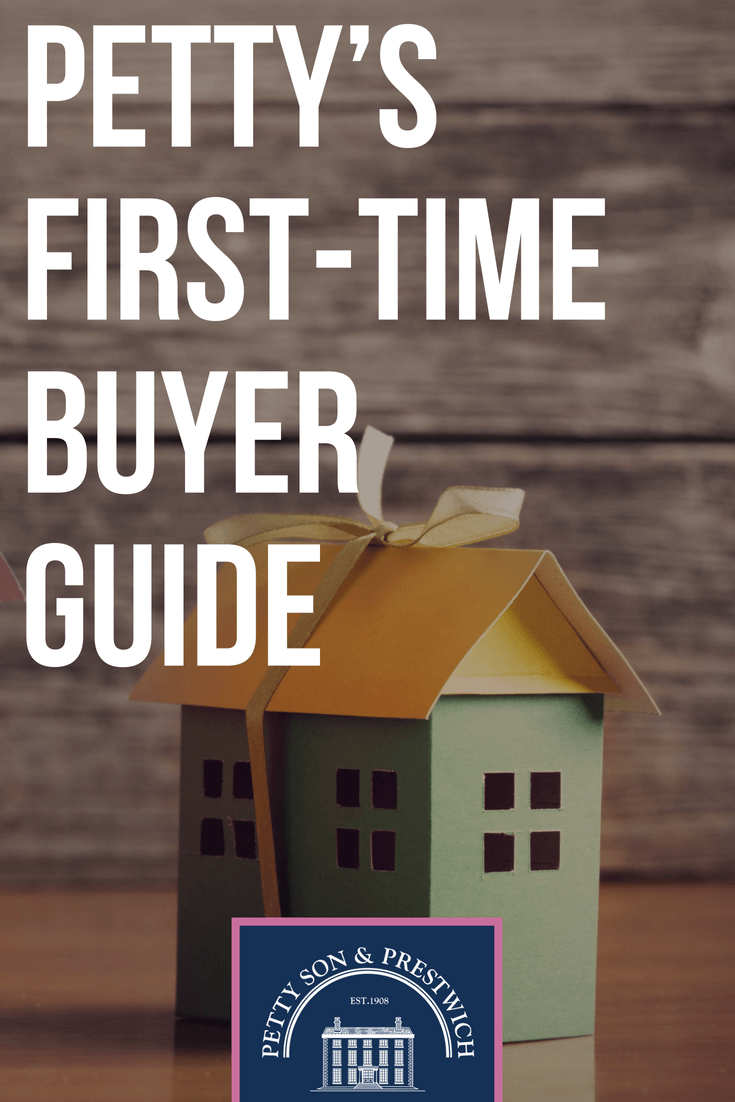Buying a property for the first time is exciting, but it’s not without its ups and downs. Getting the right advice from the start can help enormously, which is why we decided to put together a guide for all you first-time buyers out there.
Our first-time buyer guide will cover everything you need to know, from getting your deposit together right through to exchanging your contracts and completion. So, grab yourself a cuppa and settle in to our guide to buying your first ever property!
What sort of deposit do I need to have?
This is the first question you need to have answered before you can seriously start to look at properties. Generally speaking, you will need anywhere between five and 20 per cent of the asking price of the property that you wish to purchase. Saving more money will give you far greater choice in the mortgage market and make your application more attractive to lenders, so it makes sense to rustle up every penny that you possibly can before committing to move. Our guide to saving for your deposit will help get you on the right track if you have not yet reached the required amount.
Finding a mortgage
There are very few people who are lucky enough to be able to buy property outright, so the vast majority of us will need a little financial assistance in the shape of a mortgage. A mortgage is no different to any other loan in principle. You have a lender (usually a bank or a building society) and a borrower (you) and the borrower needs to repay the loan along with any interest that it is accrued across the life of the loan.
Borrowing such large sums of money can be a little daunting to first-time buyers, but remember, you are far from alone. According the English Housing Survey, in 2014 there were 6.9 million active mortgages in operation. If everyone else can do it, so can you! The key thing is getting the right advice, and there has never been more information available to buyers about mortgages than there is today.
Online research is a great place to start and there is a wealth of mortgage comparison websites out there that will give you a great idea of what mortgages are currently on the market. It’s worth keeping in mind that lenders are far stricter now than they were pre-2007, so be sure to have your personal finances in order before you begin applying for anything.
Speaking with a reputable and trusted mortgage advisor can also help you make the right decision and could even end up with you getting a far better deal than you would if you tackled the subject on your own. Petty Son and Prestwich have been working closely with Clarity Financial Management for a number of years and we wholeheartedly recommend the excellent service they provide should you wish to go down this route before making your final decision.
Getting help from the government
First-time buyers are now getting more help than ever, so it’s important to explore all of your options if you are struggling to get a sufficient deposit together for a mortgage. The government has introduced a number of schemes aimed solely at getting people just like you on the property ladder. This excellent page from the Money Advice Service will tell you all you need to know about the various schemes that are currently available: Government schemes for first-time buyers and existing homeowners
Calculating your monthly repayments
One thing that you must be certain of when you take out a mortgage is that you will be able to meet the repayments each and every month. Failing to repay your mortgage could result in your home being repossessed, so you really do need to be honest with yourself about what you can afford to lay out each month.
Drawing up a proper budget will help you see exactly where your money goes each month and allow you to work out what is left over for your mortgage repayments. Again, there are a number of online resources that will help you create your own budget plan and they will give you a better idea of what you are spending and where.
Once you have a concrete figure in mind, you can then move on to working out the size of mortgage you can afford. All of the major high street banks have affordability calculators on their websites, so it’s just a case of doing a quick Google search to find one that suits you best.
Working out all other costs
Unfortunately, the bills don’t end with the mortgage, so you’ll need to get a handle on some of the additional costs that you will incur as well. If you are currently renting a property where all of your utilities are paid, remember to include these in your calculations. Buildings and contents insurance are also now your responsibility, too.
Other things, such as a ‘rainy day’ fund where you put money away for any inconvenient yet inevitable repairs that are part and parcel of being a homeowner, are also a good idea to include in your budget as well.
Perform your own stress test
It is also wise to work out if you will still be able to afford your mortgage should the interest rate rise unexpectedly in the future. A jump in interest rates to seven per cent from 2.25 percent would make repayments on a £119,000 mortgage leap from £519 per month up to £841. Would your finances be able to cope?
Lenders are now performing stress tests as a matter of course, so working out what your buffer is for such eventualities can help prevent you from being turned down for a mortgage that you thought you stood a good chance of being accepted for.
Stress tests also take into consideration changes in circumstances, such as having kids or the possibility of redundancy, so cutting your outgoings down to a minimum before making an application is often prudent.
Factoring in your one-off expenses
Now that you have done all the number crunching for your regular outgoings, it’s time to work out what costs you are going to incur during the move itself. Setting up home for the first time isn’t easy and some of these one-off expenses can often be the straw that broke the camel’s back. Knowing about them up front allows you to plan accordingly. The main ones to watch out for are:
- Stamp Duty (for more info, see the government’s website here)
- Arrangement fees for your mortgage added by your lender
- Valuation fees where applicable
- Cost of conducting a survey
- Solicitor’s fees
- Cost of hiring a removal firm
- Any repairs or refurbishments you need to make the property habitable
- Decorating expenses
- Furniture
Searching for your property
Now that all of that boring, but essential, number crunching is out of the way, the fun part can begin – looking for your first property. As we have seen throughout this guide, there has never been a better time for easy research and having information at your fingertips. Thanks to the Internet, you can now browse numerous properties from pretty much anywhere using sites such as OnTheMarket.com, Rightmove and Zoopla.
However, when it comes to actually getting targeted properties sought out for you, registering your interest with a trusted estate agent in your local area is still by far the best method to really get your search underway.
Viewing properties
When you first start looking at properties, it can be easy to get a little overwhelmed. Bringing someone who has already had experience in the property market with you is recommend, as they will be able to remind you of what you are actually looking for and point out things that you may not have thought to look for.
Having a pre-prepared list of questions can also help you get a better idea of what the property is like. Some of the things you’ll want to find out about include:
- Which Council Tax band is the property in?
- Have there been any recent modifications made? For example, new windows etc.
- What are the utility bills like for the property?
- Do you have a water meter?
- Is the property fully insulated?
- How old is the boiler and has it been regularly serviced?
- Who owns what in terms of boundaries?
- What are the local amenities like?
These will get you started, but if you feel as though you have any others that you wish to add, by all means do. Buying a property is a big commitment, so make sure you have all of the information you need before you move on to the next stage.
Making an offer
That’s it! You’ve fallen in love with a property and you’re ready to move on with buying it and setting up home. The next step is to put in an offer to the vendor through the estate agent who is handling the sale. As you are a first-time buyer, you may need to prove that you can secure a mortgage before you can make a serious offer so it is worth trying to secure an agreement in principle with your lender first.
Remember that in many ways you are in the strongest position possible as you are coming to the sale ‘chain-free’. This will be an attractive proposition to the vendor as they will not have to wait for you to sell your property before you can move. Keep this in mind when making your offer and during any future negotiations.
They’ve accepted! What happens now?
Congratulations! Now it’s the turn of the legal people to iron out any discrepancies and sort out all of the administrative work that comes with buying a property. Your solicitor will handle everything from here on in and will become your intermediary during the buying process.
They will contact the Land Registry on your behalf, deal with the Stamp Duty arrangements and handle the transference of funds between your bank and the seller’s account. They will also be in contact with you in order to agree the full terms of sale and sort out the date on which you will be able to move into your new home. It is at this point that your mortgage will be approved by your lender, although some may insist that the property is insured before finalising the approval process.
Once both party’s solicitors are happy, contracts will be exchanged, locking you into a legally binding agreement with the seller. Your deposit will be taken from your account and you’ll be heading towards completion day. When the big day comes around, the keys to your new property will be handed to you either by the seller or the estate agent handling the sale.
All you need to do now is make sure that all relevant parties are aware that you have moved and you can then, finally, settle down in what is your now your very own property.
Call our team of expert agents today if you have any questions about buying your first home in East London or West Essex, we’d be delighted to help you get your feet firmly on the property ladder.
Wanstead office – 020 8989 2091 or This email address is being protected from spambots. You need JavaScript enabled to view it.
Buckhurst Hill office - 020 8504 5403 or This email address is being protected from spambots. You need JavaScript enabled to view it.


As Petty’s MD, John steers the ship. He is, however, first to admit that the team around him run the show, and he’s incredibly proud of each and every one of them. Sporty and studious, caring and loyal, John is a father of two wonderful children (and Cooper the dog).
020 3370 8784 / Email Directly